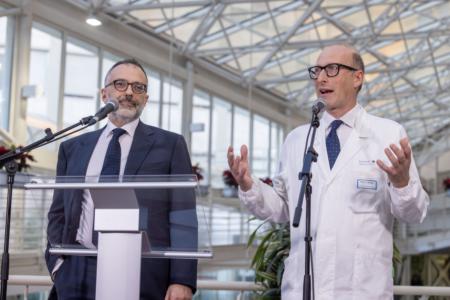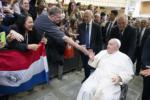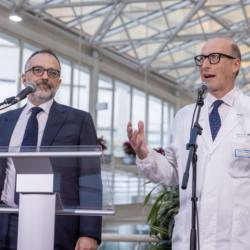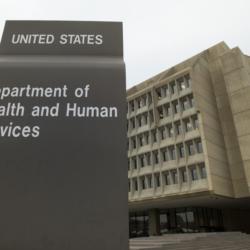'Pilgrims of Hope'
On May 9, 2024, during the Papal Audience, Pope Francis officially declared 2025 as a Jubilee Year. The theme for this special year is "Pilgrims of Hope," inviting people worldwide to embrace faith, reconciliation, and renewal. The Jubilee Year commenced on Dec. 24, 2024, with the ceremonial opening of the Holy Doors and will continue throughout 2025, concluding on Jan. 6, 2026, the feast of Epiphany.
In the Roman Catholic tradition, a Jubilee Year is a time of grace, marked by the forgiveness of sins and the remission of temporal punishment due to sin. It is a period dedicated to spiritual renewal, reconciliation, and deeper commitment to faith. The faithful are encouraged to receive the Sacrament of Reconciliation, engage in acts of charity, and foster solidarity, hope, justice, and service to God and humanity. Given the challenges facing the modern world, the message of the 2025 Jubilee resonates profoundly.
The concept of the jubilee has biblical origins, inspired by the Old Testament tradition of celebrating a jubilee every 50 years. This ancient practice called for the release of slaves, the forgiveness of debts, and a year of rest for the land. Pope Boniface VIII instituted the first Christian jubilee in 1300, offering plenary indulgences to those who made a pilgrimage to Rome and visited the Basilicas of St. Peter and St. Paul Outside the Walls. The overwhelming response led to the continuation of the tradition. Initially, jubilees were observed every 50 years, but Pope Urban VI adjusted the interval to 33 years in 1389, symbolizing the earthly life of Jesus Christ. Later, in 1470, Pope Paul II further refined the tradition by establishing a 25-year cycle, ensuring that every generation could participate in at least one Jubilee Year.
Over the centuries, various jubilees have left a lasting impact. The 1575 Jubilee, led by Pope Gregory XIII, was marked by the widespread granting of plenary indulgences for charitable works. Political upheavals sometimes hindered participation, as seen in the 1825 Jubilee under Pope Leo XII, which coincided with the turmoil of the French Revolution.
A turning point came with Pope Pius XI's Jubilee, which emphasized the spiritual sovereignty of the Church and gained a truly global reach. Pope John Paul II's Great Jubilee of 2000 took on extraordinary significance by incorporating ecumenical and interreligious dialogue. The opening of the Holy Doors in major basilicas became a powerful symbol of transition into a new millennium, uniting Catholic tradition with a modern vision of faith and unity.
The 2025 Jubilee follows the traditional 25-year cycle and is expected to draw millions of faithful people from around the world. While ordinary jubilees occur on this set schedule, popes may also declare Extraordinary Jubilees for special occasions. Pilgrimages to Rome and other holy sites are a central aspect of these sacred years. Pope Francis has underscored the importance of pilgrimage as a spiritual journey, writing, "Pilgrimage is of course a fundamental element of every jubilee event. Setting out on a journey is traditionally associated with our human quest for meaning in life. A pilgrimage on foot is a great aid for rediscovering the value of silence, effort, and simplicity of life."
The themes of the 2025 Jubilee -- reconciliation, peace, and mercy -- align closely with Pope Francis' vision for the Church and its role in the modern world. As the faithful embark on this sacred journey, the jubilee offers an opportunity for renewal, fostering a spirit of hope and unity in an era marked by division and uncertainty. As the doors of mercy open once more, millions will answer the call to be "Pilgrims of Hope," embracing faith, forgiveness, and the transformative power of the Jubilee Year.



















